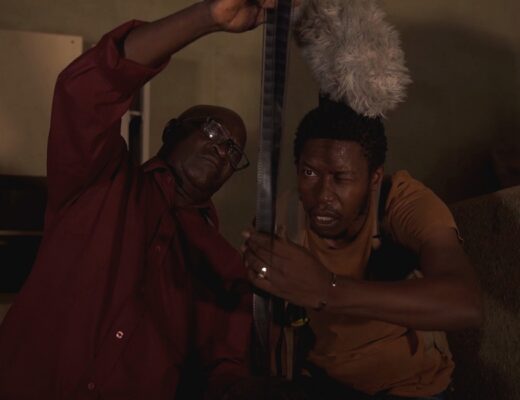Lebanese filmmaker Ali Cherri has been a bit of a fixture on the festival circuit with his wry, melancholy short works addressing the state of the Arab world. His 2011 film Pipe Dreams was a miniature triptych about the hopes and failures of the Arab Spring, and his slightly longer film The Disquiet (2013) examined instability in Lebanese life, both on a cultural and a seismic level, literalizing the concept of a society breaking along various fault lines. With all this in mind, anticipation was high for The Dam, Cherri’s feature debut, which played in this year’s Quinzaine.
Sadly, The Dam is a disappointment. In creating a fiction/documentary hybrid set in Sudan, Cherri has produced a film that embodies a great many world cinema clichés without bringing a great deal to the table that’s new or provocative. The Dam starts out quite well, with Cherri focusing on the labor process as a kind of counterpoint to broader political shifts. As news reports mark the unfolding of the 2019 Sudanese coup d’etat, Maher (Maher El Khair) and his colleagues work at a production plant along the Nile, slopping mud into metal molds to generate hundreds of identical adobe bricks. Even though there’s a fairly obvious metaphor at work here – the land being subdivided into a commodity, one that promises to form the foundation of something else – The Dam’s patient observation refrains from overstating it. This part of Cherri’s film scans like a nominally fictionalized version of Harun Farocki’s brickmaking documentary, In Comparison (2009).
Eventually, we see Maher riding off alone into the desert. In a series of evocative shots, Cherri reveals that Maher is working on a very different mud structure, a giant figure with tree-branch arms and a primitive-looking face. Again, The Dam seems at this point to be introducing a compelling idea, and a fairly original one. Maher works all day shaping mud into uniform blocks that are not his property; in his off-hours, he is an artist, turning the medium of his oppression toward his own free expression. Alas, that’s not where The Dam goes.
Instead, Cherri takes a sharp turn into the supernatural, with Maher’s colossal human form coming to life: a Golem of sorts that seems related to the political violence and unrest that eventually moves into the foreground. This is a fashionable strategy for art films in the post-Apichatpong era, the mythic and the spiritual bubbling up into an otherwise ordinary waking life. But it’s never really a good idea to impersonate an artist as singularly visionary as Apichatpong, because no one else can do what he does. What The Dam does accomplish is cheapening its political content, implying that revolution in Sudan is just an outbreak of long-simmering mystic energies. I don’t think that Cherri has meant to reduce African geopolitics to the elemental or the atavistic, but this is the end result of The Dam, a film that promises material analysis and lapses into mystification.
Published as part of NYFF 2022 — Dispatch 4.







